February 26, 2016
Best quotes from the Schieffer Symposium
The world transformed dramatically during the 11-year run of the Schieffer Symposium on the News. One constant: Its namesake always brought the biggest names in news to discuss the day’s top stories.
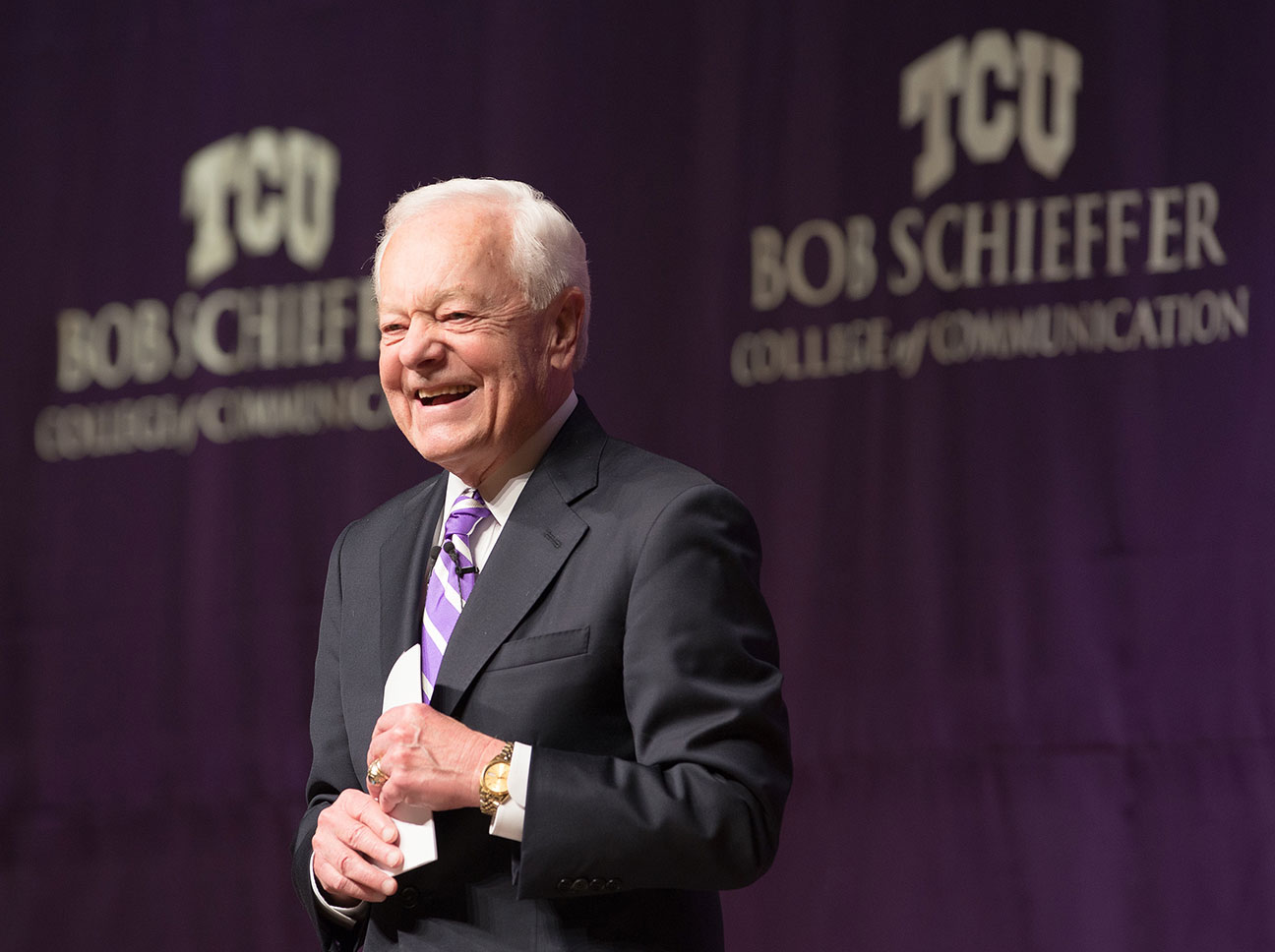
Bob Schieffer '59 always wore a purple tie for the 11-year run of the Schieffer Symposium on the News, begun in 2005. Schieffer confirmed this year that the program had concluded upon his retirement in 2015. (Photo by Glen E. Ellman)
February 26, 2016
Best quotes from the Schieffer Symposium
The world transformed dramatically during the 11-year run of the Schieffer Symposium on the News. One constant: Its namesake always brought the biggest names in news to discuss the day’s top stories.
In April 2015, Bob Schieffer ’59 surprised everyone at his 11th Symposium on the News by announcing his retirement from CBS, wrapping up a 58-year career as a reporter that began in Fort Worth. His last show as anchor of “Face The Nation” was in May.
In January, the newsman confirmed that the annual panel discussion would not return. He told student media outlet TCU360 that he believed in ending on an upswing.
The forum’s 11 year-run, seen by more than 12,000 attendees, covered the major headlines of a rapidly changing world — three presidential elections, wars in Iraq and Afghanistan, the Arab Spring, gridlock in Washington, terrorism, a worldwide economic downturn and the journalism industry in transformation. To provide context and imagine what’s ahead, Schieffer brought friends, competitors and media thought leaders to join him in “talking shop” — 43 in all.
Today, their analysis seems prescient. Here are the best quotes from more than a decade of media insights:
2005
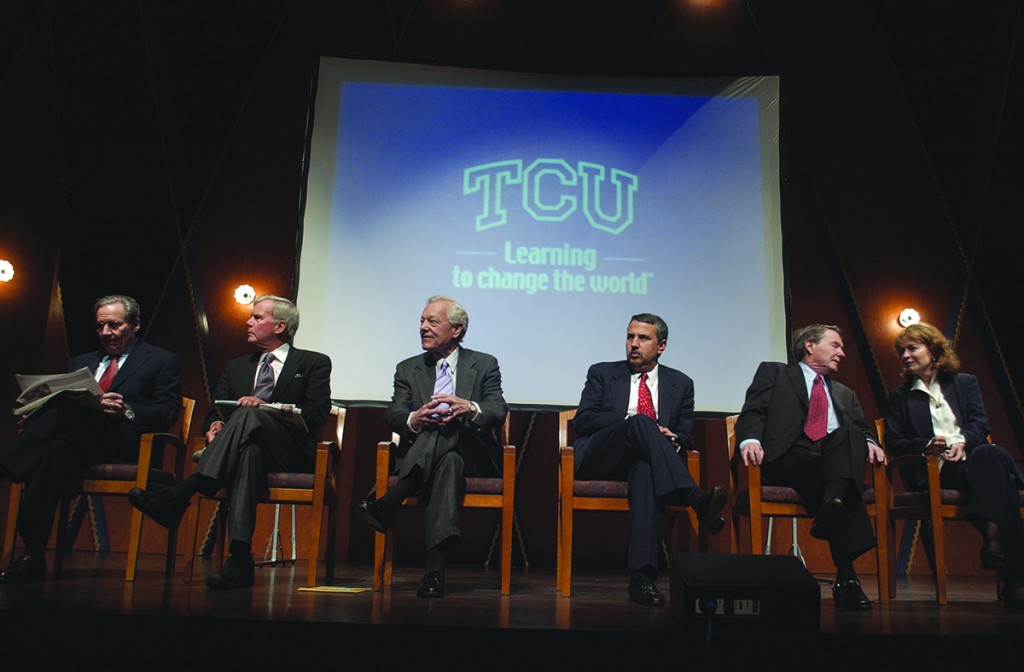 Bob Woodward, Tom Brokaw, Bob Schieffer ’59, Tom Friedman, Jim Lehrer and Kate Lehrer ’59 were the participants in the first annual Schieffer Symposium on the News in 2005. (Photo by Linda Kaye)
Bob Woodward, Tom Brokaw, Bob Schieffer ’59, Tom Friedman, Jim Lehrer and Kate Lehrer ’59 were the participants in the first annual Schieffer Symposium on the News in 2005. (Photo by Linda Kaye)
Tom Brokaw
former anchor
“NBC Nightly News with Tom Brokaw”
“The rise of 24/7 television and cable has a voracious appetite. An easy way to feed it is to keep conflict going constantly between the left and the right. Therefore, you have this polarization. We must be pro-gun or anti-gun, pro-rights or anti-rights on abortion. I think it’s not good for the country.”
Bob Woodward
author/journalist
The Washington Post
“[President George W.] Bush has a policy of ending tyranny everywhere. But how many tyrannies are there in the world? You need a very specific policy for how you deal with Lebanon, Syria, North Korea, countries in Africa, Iran. And when you look at the Bush administration, there is a mindset of one-size-fits-all. Well, it is not a one-size-fits-all world.”
Kate Lehrer
author
“The money that makes politics work comes from people who feel strongly about one issue or are the people that are the real advocates. Moderates do not put money into moderate positions. They only put money in extreme positions.”
Thomas Friedman
columnist
The New York Times
“High schools in America are becoming obsolete. It’s a quiet crisis that is a product of the fact that the greatest generation of American scientists is retiring. We never filled in with a new generation of scientists and engineers and mathematicians.”
Jim Lehrer
anchor
“PBS News Hour”
“There is a disconnect between what we’re doing in Iraq and the great vision of democracy and protecting ourselves from terrorism. A very small group of Americans is really doing the work for the rest of us, and I think that we’re going to be forced into a debate about national service, possibly a draft.”
2006
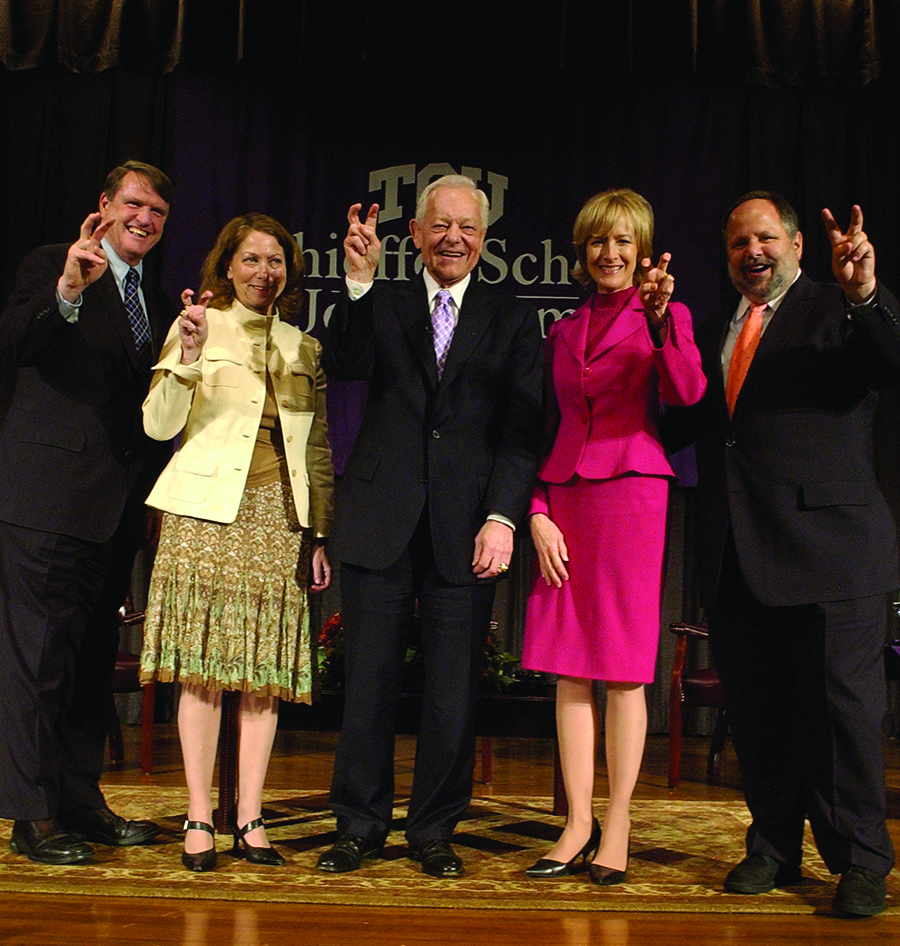
Joining Bob Schieffer in 2006 were Len Downie, Jill Abramson, Judy Woodruff and Larry Kramer. (Photo by Linda Kaye)
Jill Abramson
managing editor
The New York Times
“We were talking to a reporter who is returning to Iraq, and he said the biggest frustration and challenge isn’t worrying about the danger. It’s that they can’t get out and talk to enough real people. And bloggers don’t do that at all. There are citizen bloggers in Iraq who have made a contribution, but you need professional journalists who know how to operate and who have standards and who collect the facts and reach conclusions – not because it’s their opinion, but because they have gathered the information and really worked hard.”
Len Downie
Executive editor
The Washington Post
“News is the most important word in newspapers. We’re going to put news in all different platforms because we have the people who know all about science and about the Pentagon and about the war in Iraq and about the State Department and about the Redskins and the Washington Nationals – people who are experts in these areas. That’s a commodity we have that people are still interested in.”
Judy Woodruff
correspondent
CNN, PBS, NBC
“[Bloggers’] agenda is really an opinion agenda. And the agenda of the mainstream media – we hope and we believe – is to report the news. But they have set upon the mainstream media in many cases and made it seem as if we do have an agenda like theirs but on the opposite end of the spectrum.”
Larry Kramer
president
CBS Digital Media
“Nobody knows what [new ways of getting news] going to look like. It will involve all the media. It’ll involve print in some form and the Internet and computers. And it will involve BlackBerrys.”
2007
 On the 2007 panel were Tim Russert, Bill Keller, Jan Crawford Greenburg and Earl G. Graves. (Photo by Linda Kaye)
On the 2007 panel were Tim Russert, Bill Keller, Jan Crawford Greenburg and Earl G. Graves. (Photo by Linda Kaye)
Jan Crawford Greenburg
legal analyst
ABC News
“The president has the authority to fire and hire any of these federal prosecutors as he sees fit. And that was the White House’s position early on. As this story has trickled out – information here and there, some of it conflicting – it suggests there is something more behind some of these firings. Whether a crime was committed or not, I think everyone can agree this was botched from the beginning in the way the Justice Department handled it.”
Bill Keller
executive editor
The New York Times
“Whether you like [Hillary Clinton] or don’t like her, whether you support her or don’t support her, you have to take her seriously as a candidate.”
Earl G. Graves
editor and publisher
Black Enterprise magazine
“The question is the candidates, where are they going to stand on the [Iraq war]? Are they going to make it enough of an issue that it’s going to assist in ending the war? I happen to think we’re going to be there for many years because I don’t see how you extricate yourself from this situation.”
Tim Russert
host
“Meet The Press”
“[Scooter Libby] filed a viewer complaint. And he says during the course of that complaint to me that he learned for the first time about Valerie Plame. Well, it didn’t happen. I didn’t know who Valerie Plame was. As it turns out, the jury obviously, hearing all the testimony, concluded that he knew it far earlier than having talked to me. I told the truth. I didn’t enjoy it. I don’t relish what happened to him and his family. But I also realize as a journalist I don’t believe I had any choice.”
2008
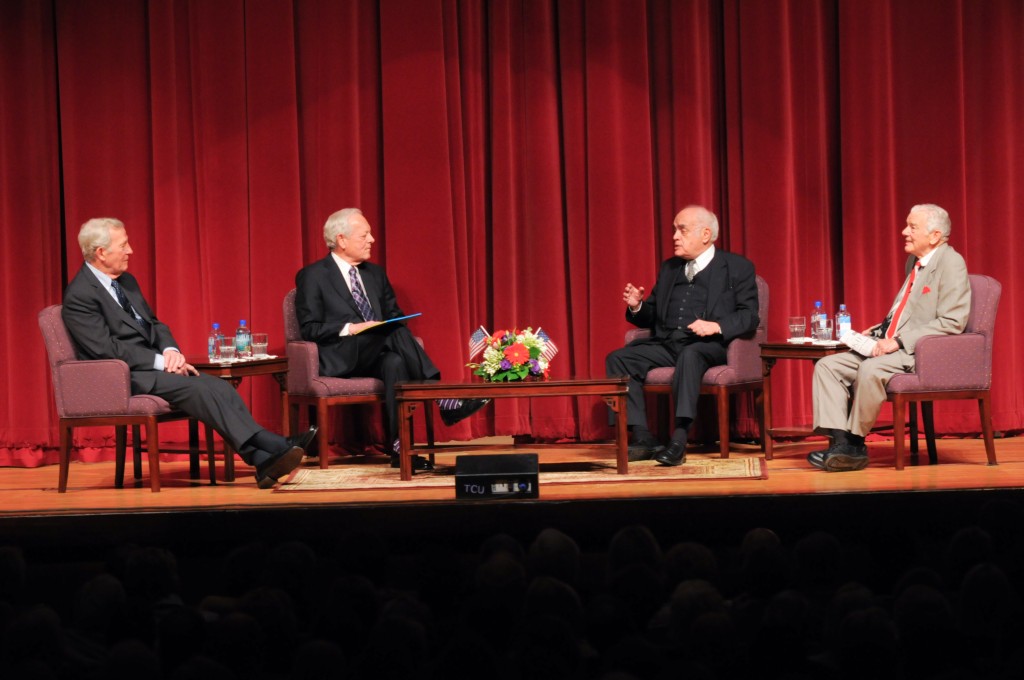 The 2008 panel was highlighted by Roger Mudd, Robert Novak and Al Neuharth. (Photo by Glen E. Ellman)
The 2008 panel was highlighted by Roger Mudd, Robert Novak and Al Neuharth. (Photo by Glen E. Ellman)
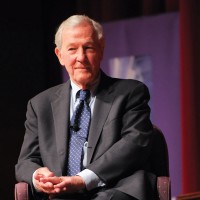 Roger Mudd
Roger Mudd
reporter
CBS News, NBC News
“I can’t imagine Barack Obama
really wanting Hillary Clinton on the ticket
because Bill Clinton will be living
in the White House.”
Al Neuharth
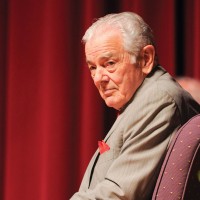 founder
founder
USA Today
“The real issue will be [John] McCain’s age.
I’m 84. I remember when I was 71.
At night after 9, you wouldn’t want me
picking up the red phone. I propose a maximum
age [for the presidency] of 65.”
Robert Novak
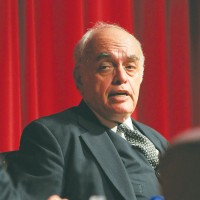 columnist
columnist
Chicago Sun-Times
“Take all the indicators – unpopular president, unpopular war, bad economy – and it points to a Democratic win. But we don’t have that kind of cut-and-dried election.”
2009
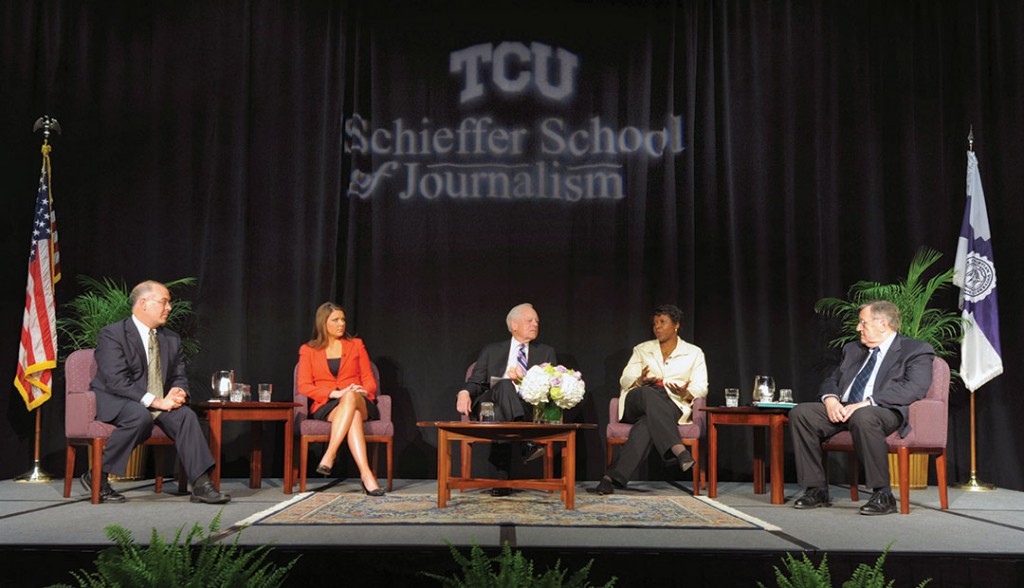 In 2009, panelists included David Brooks, Trish Regan,Gwen Ifill and Mark Shields. (Photo by Glen E. Ellman)
In 2009, panelists included David Brooks, Trish Regan,Gwen Ifill and Mark Shields. (Photo by Glen E. Ellman)
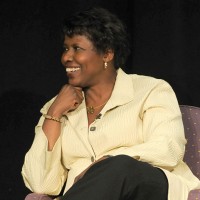 Gwen Ifill
Gwen Ifill
host
“Washington Week”
“I’m not certain I would call it bias as much as intensity. I sometimes think our coverage is bring driven by the intensity of voters for whether you all it change or whether you call it reversal of direction. Whichever, they are hanging a lot on the outcome of everything [President Obama] does and says. There is just this obsession. And so we just try to keep up by covering it.”
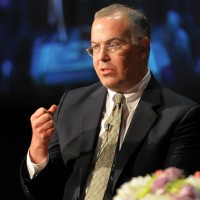 David Brooks
David Brooks
columnist
The New York Times
“The public is nervous and apprehensive, but they’re rooting for President Obama. For all the adulation, I think that there’s been a level of scrutiny on the stimulus package and examination of his Cabinet choices.”
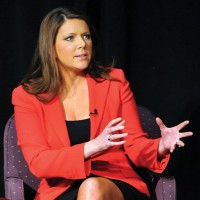 Trish Regan
Trish Regan
anchor
CNBC’s “The Call”
“The attitude is that it’s not enough to make a difference. [President Obama] should tackle one thing at a time, and the most important problem he can address is solving the financial crisis and loosen up credit flow.”
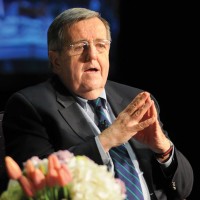 Mark Shields
Mark Shields
commentator
“NewsHour with Jim Lehrer”
“Any bias the media has is toward winners. Karl Rove was hailed as a genius after the Republicans won the White House in 2000 and 2004, yet few view him as such today. [President] Obama was viewed as a underdog when the election season began. His meteoric rise fueled much exposure.”
2010
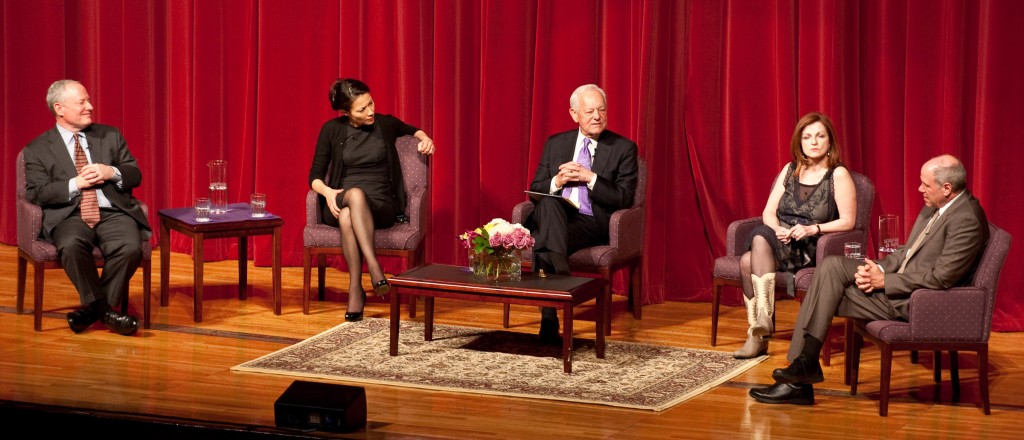 The 2010 symposium featured William Kristol, Maureen Dowd, Ann Curry and Michael Eisner. (Photo by Glen E. Ellman)
The 2010 symposium featured William Kristol, Maureen Dowd, Ann Curry and Michael Eisner. (Photo by Glen E. Ellman)
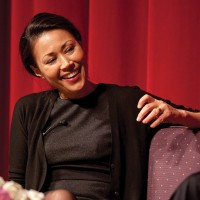 Ann Curry
Ann Curry
anchor
“Dateline NBC” and “Today”
“When we do a lot of this kind
of reporting [on atrocities in Darfur and Sudan],
we notice that the American people
don’t want to watch it.”
Michael Eisner
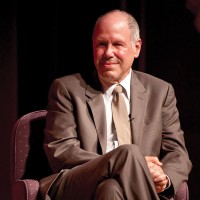 former CEO
former CEO
Walt Disney Co.
“Washington is not broken. America is cracked, and it is a reflected in Washington. We’re not out of the economic funk, which is incredibly serious. All these issues come down to economics. That’s what needs fixing. The system in Washington, with its three parts of government and checks and balances is fantastic. It’s not as simple as ‘Is Washington broken?’ We’ve spent ourselves into a problem.”
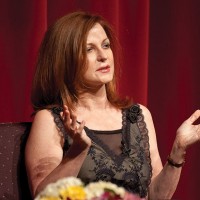 Maureen Dowd
Maureen Dowd
columnist
The New York Times
“[President] Obama came in with this image of himself as leading a team of rivals, and he would come in and smooth the waters and fix everything up. I think he still wants to do that. But the fact that he could not do it this last year was when he was very confident he could, it was very startling to me as a Washington native. I was surprised at how tough it was for him.”
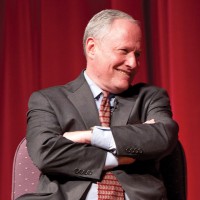 William Kristol
William Kristol
founder and editor
The Weekly Standard
“[President] Obama decided to surge troops into Afghanistan. Republicans on the Hill supported him. Conservative journalists supported that. On Iraq, it’s been a basic consensus that we should draw down, but not too fast. With the nuclear announcement on Iran the other day, it was a very muted response. Secretary Gates, of the Department of Defense, is a bipartisan appointment. Secretary Clinton has good relationships with Republicans on the Hill. I can objectively say that I don’t think there has been a single partisan vote on foreign policy in the Congress since Obama became president, except maybe a little on war on terror issues and Guantanamo issues. ”
2011
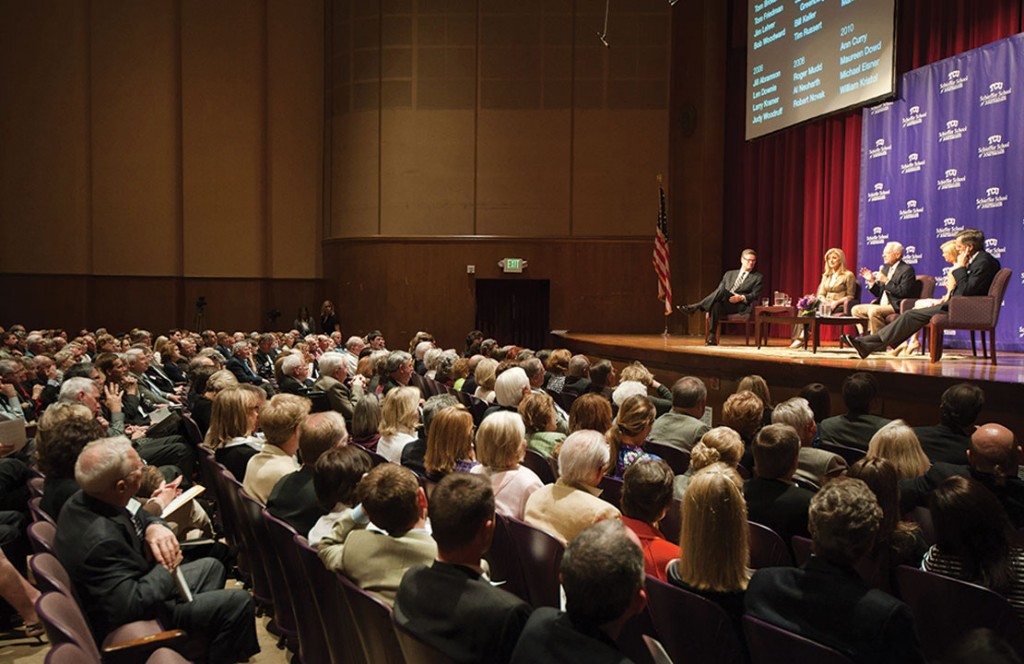 Panelists in 2011 includedJoe Scarborough, Arianna Huffington, Mika Brezezinski and Brit Hume. (Photo by Glen E. Ellman)
Panelists in 2011 includedJoe Scarborough, Arianna Huffington, Mika Brezezinski and Brit Hume. (Photo by Glen E. Ellman)
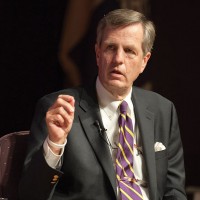 Brit Hume
Brit Hume
commentator
Fox News
“It doesn’t matter who the Republican nominee is. The [2012 presidential] election is going to be about whether the public believes it should replace the president or not.”
Arianna Huffington
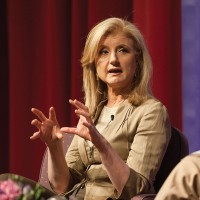 founder
founder
The Huffington Post
“Is it too late for the Republicans? Shouldn’t they have a favorite by now if they’re going to win? An independent candidate that could attract voter disgusted with both the GOP and [President] Obama would be the most interesting element of the race.”
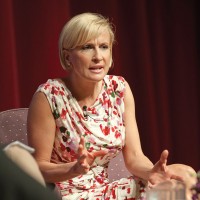 Mika Brezezinski
Mika Brezezinski
co-host
NBC’s “Morning Joe”
“People have invested a lot of hope in the whole concept of [President] Obama. Whatever it’s worth, it’s going to take a strong individual candidate to really knock that down. This should be a huge opportunity for a Republican candidate, but there isn’t one. They’re all flawed. And it seems surprising, especially given how people feel.”
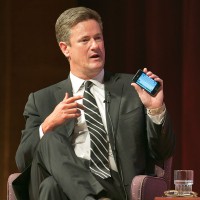 Joe Scarborough
Joe Scarborough
co-host
NBC’s “Morning Joe”
“[The 2012 presidential election] is going to be a referendum on [President] Obama and how the public believes he has handled the economic recovery and what the unemployment rate is.”
2012
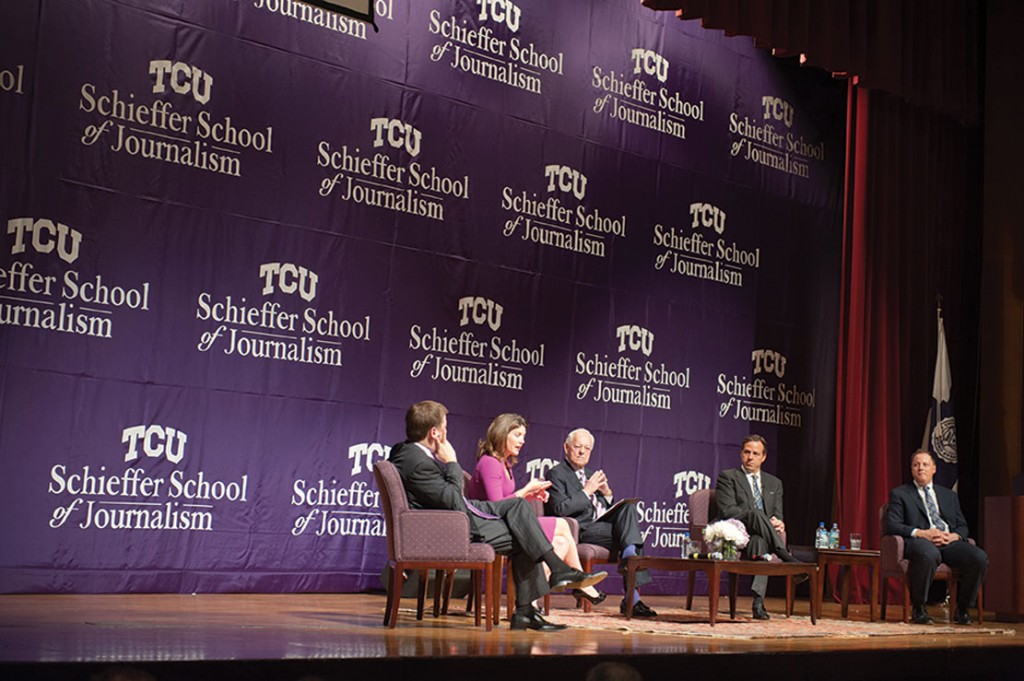 In 2012, the symposium welcomed Chuck Todd, Norah O’Donnell, Jake Tapper and John Harris. (Photo by Glen E. Ellman)
In 2012, the symposium welcomed Chuck Todd, Norah O’Donnell, Jake Tapper and John Harris. (Photo by Glen E. Ellman)
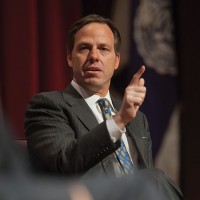 Jake Tapper
Jake Tapper
senior White House correspondent
ABC News
“Republicans look at four years ago when Obama got 53 percent to McCain’s 47 and think, ‘Obama’s never going to get more than 53 percent.’ So they’re fighting over this 6 percent, about 3 to 4 million people. They’ve got to convince them that it’s okay to like the president but not vote for him because of disappointing results.”
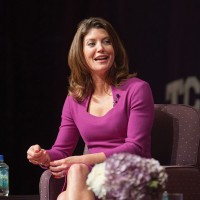 Norah O’Donnell
Norah O’Donnell
chief White House correspondent
CBS News
“If Barack Obama makes the election
about Mitt Romney, he wins.
If Romney wins, he will have made
it about the economy.”
John Harris
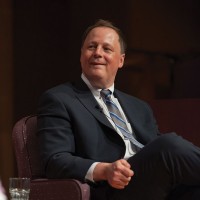 editor-in-chief
editor-in-chief
Politico.com
“[Mitt Romney] can’t argue about the economy or sway voters if he can’t restore his image. One of the great challenges in politics is to get people to view you as you view yourself. He came perilously close to losing control of his public image in the primary. He’s an experienced businessman who is now cast as an elite, out-of-touch executive who laid people off, sort of this expedient figure. He has to reframe that.”
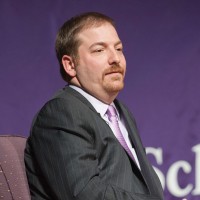 Chuck Todd
Chuck Todd
chief White House correspondent
NBC News
“The race to the White House is going to be very close and very negative. Both parties, mechanically, have never been closer.”
2013
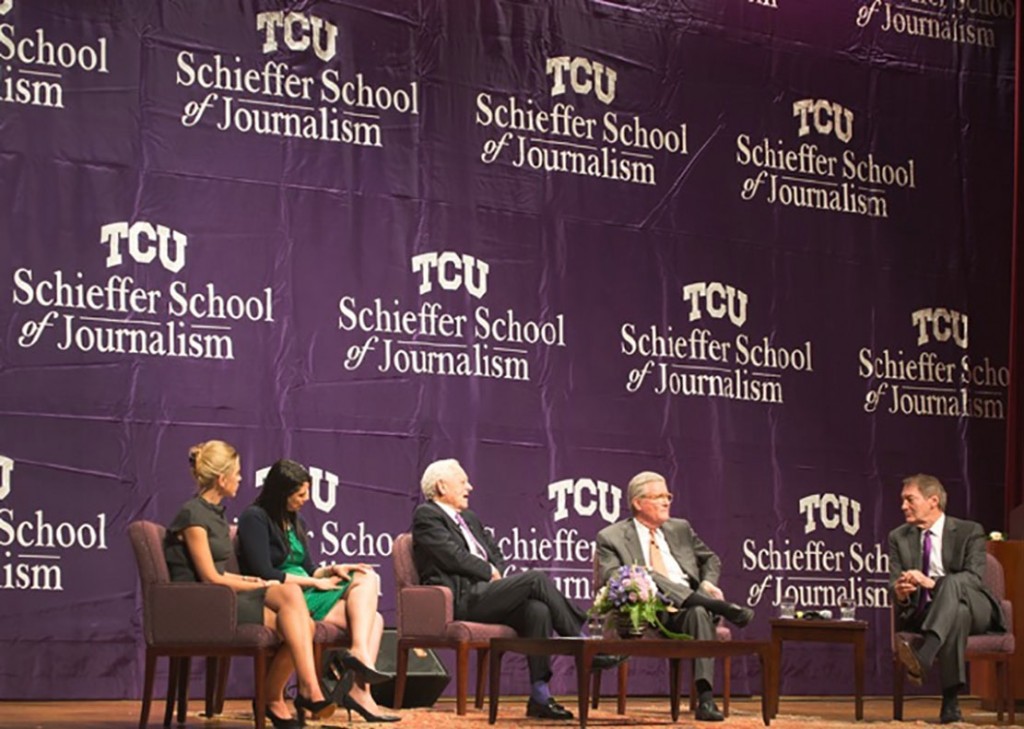 The 2013 forum included Clarissa Ward, Nancy Youssef, Fred Barnes and Charlie Rose. (Photo by Glen E. Ellman)
The 2013 forum included Clarissa Ward, Nancy Youssef, Fred Barnes and Charlie Rose. (Photo by Glen E. Ellman)
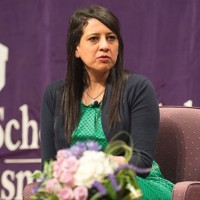 Nancy Youssef
Nancy Youssef
Middle East bureau chief
McClatchy Newspapers
“There seems to be this repeated mistake by the U.S. of unintended consequences. It’s the idea that if you liberate Egypt from [deposed dictator Hosni] Mubarak and bring democracy, that they’ll be better off. And they’re not better off. In fact, the consistent threat now is, because of these miscalculations, there is actually less U.S. influence in the entire region.”
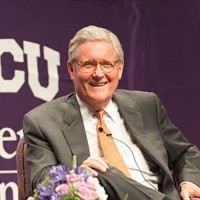 Fred Barnes
Fred Barnes
executive editor
The Weekly Standard
“[Pakistan has] nuclear weapons. [The U.S. doesn’t] have the luxury of pulling out of Pakistan. There are countries that we may not like, and they may not like us, but we need to have influence in that region and have them be dependent on the U.S. for aid and defense.”
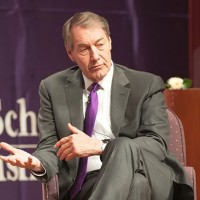 Charlie Rose
Charlie Rose
host
“CBS This Morning” and PBS’ “Person to Person”
“The worry [about North Korea nuclear tests] is that there will be a repeat of World War I. Somebody miscalculates and takes the wrong step, and somebody reacts. Then you’re off to the races.”
Clarissa Ward
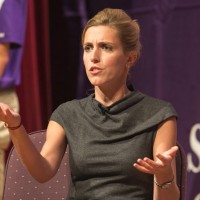 foreign correspondent
foreign correspondent
CBS News
“The Arab Spring has set off a chain of dominoes. What we’re watching now are the consequences of [U.S.] miscalculations and misreadings. No-fly zone strategies have backfired and resulted in Libya hitting civilian targets. The U.S. just doesn’t have the influence it did a few years ago. The things that were leveraged before just don’t matter to people the way they did. It’s breathtaking how much U.S. influence has diminished just this last year. Aid packages aren’t as effective. American ability to negotiate talks is weaker than before.”
2014
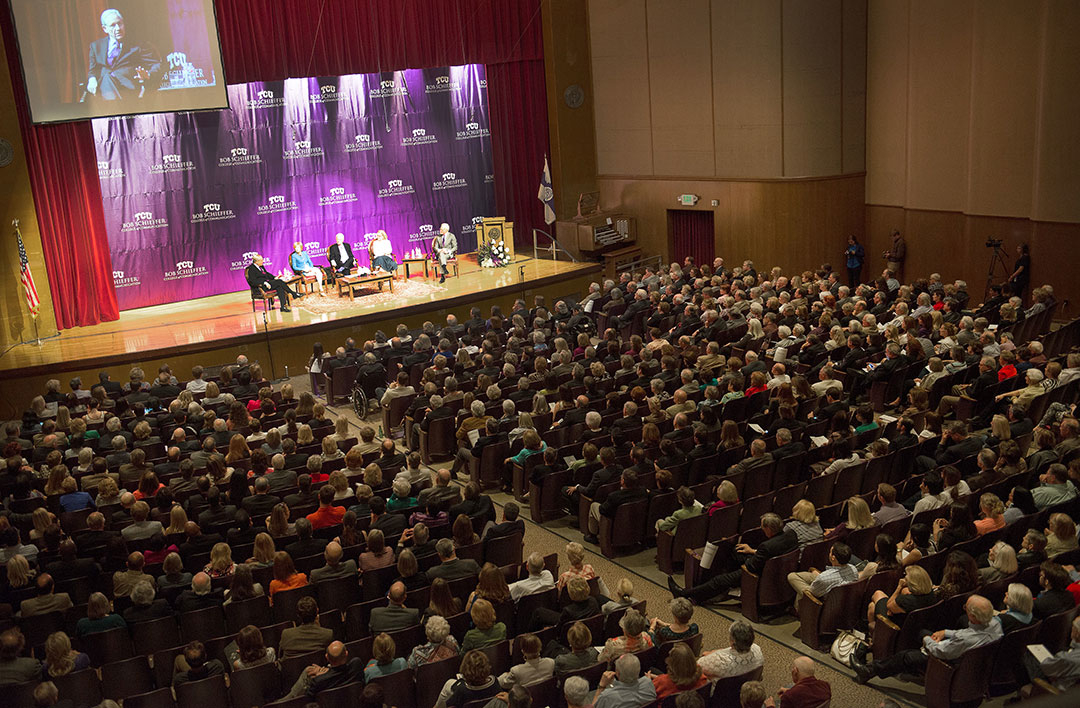 A sellout crowd heard symposium speakers Bob Woodward, Jane Pauley, Peggy Noonan and Scott Pelley. (Photo by Glen E. Ellman)
A sellout crowd heard symposium speakers Bob Woodward, Jane Pauley, Peggy Noonan and Scott Pelley. (Photo by Glen E. Ellman)
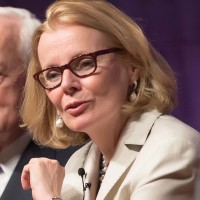 Peggy Noonan
Peggy Noonan
columnist
The Wall Street Journal
“I see more of an anti-incumbent
wave than an anti-Democratic wave
coming in the next few years.”
Jane Pauley
correspondent
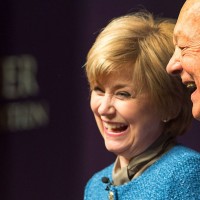 “CBS Sunday Morning”
“CBS Sunday Morning”
“There are no moderates. All of these
problems [with choked lines of
communication in Washington and
divisive political strategies] will play
a huge part in the 2016 presidential
election.”
Scott Pelley
anchor
“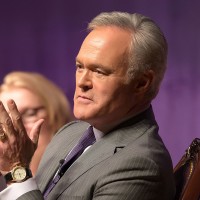 CBS Evening News with Scott Pelley”
CBS Evening News with Scott Pelley”
“The Internet has created an environment
where too much bad information is
available to the public. People are looking
for a brand they can trust.”
Bob Woodward
author/journalist
The Washington Post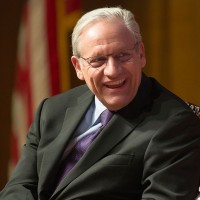
“[Gridlock in Washington] is a leadership
problem in both parties. [President] Obama is
isolated in so many ways – he hasn’t built
relationships among Republicans or
Democrats.”
2015
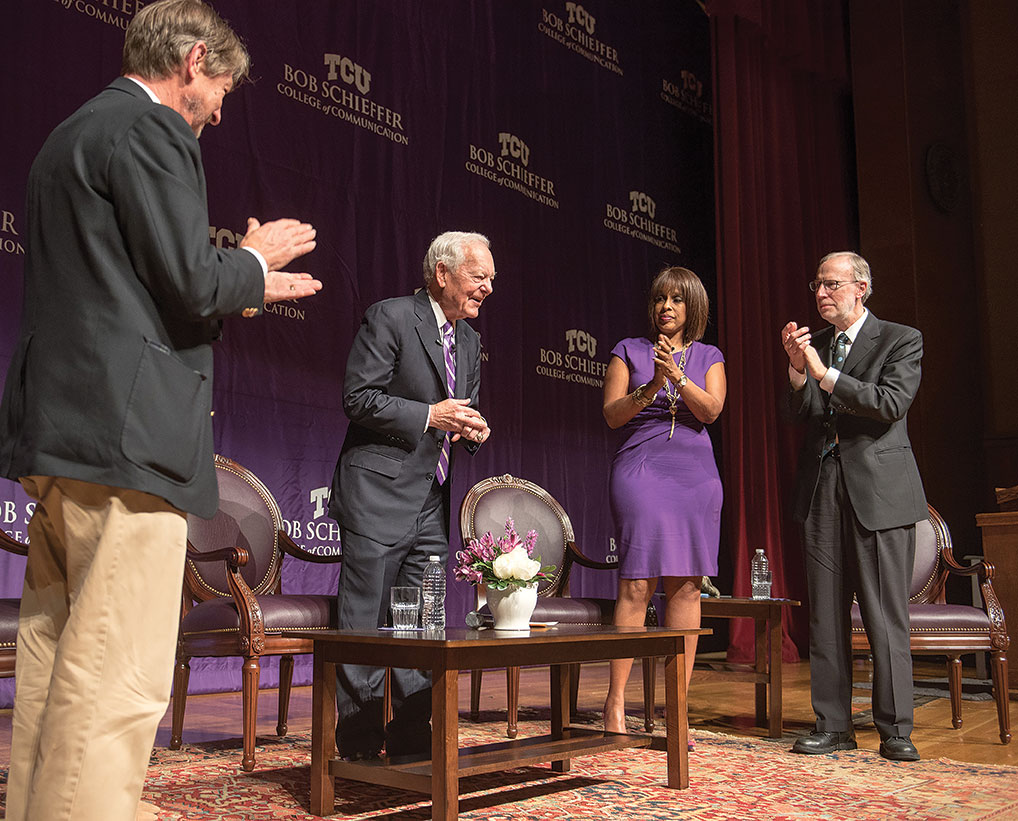 In 2015, Bob Schieffer ’59 announced his retirement from CBS with applause from panelists P.J. O’Rourke, Holly Williams, Gayle King and Dan Balz. (Photo by Glen E. Ellman)
In 2015, Bob Schieffer ’59 announced his retirement from CBS with applause from panelists P.J. O’Rourke, Holly Williams, Gayle King and Dan Balz. (Photo by Glen E. Ellman)
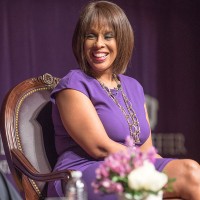 Gayle King
Gayle King
co-host
“CBS This Morning”
“It’s interesting. At last count,
only 27 percent want
[Boston Marathon bomber] Dzhokhar Tsarnaev
to get the death penalty.”
Dan Balz
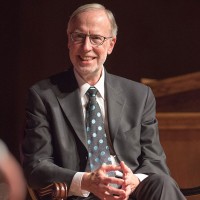 chief correspondent
chief correspondent
The Washington Post
“[The Republicans have] a series
of preliminary races and that
is what is starting to take
shape. It’s a wide open race.”
Holly Williams
foreign correspondent
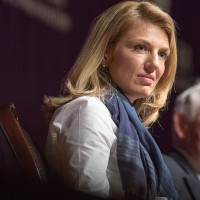 CBS News
CBS News
“You can’t airstrike ISIS.
You need effective ground
forces which Iraq doesn’t have.”
P.J. O’Rourke
political satirist
“I’m a little worried about
journalism. I think modern
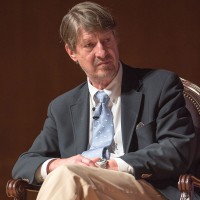 journalists are taking
journalists are taking
themselves too seriously.”

Your comments are welcome
1 Comment
What an amazing thrill it has been to have participated in almost all of Bob Schieffer’s annual symposiums. I never dreamed I would ever have the opportunity to meet all these renowned journalists up front and personal. Thanks, dear Bob, for sharing these thrilling evenings with all your Fort Worth friends.
Related Reading:
Features
A Leader Among Leaders
Victor J. Boschini, Jr.’s two-plus decades as Chancellor have transformed a university and a community.
Latest News
Purple Atop the Podium
TCU Rifle has transformed into a perennial power under coach Karen Monez.